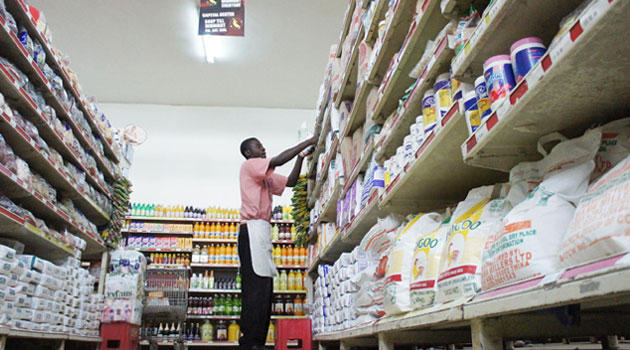
The report dubbed Kenya Real Estate Sector Analysis 2016 indicates that the key challenge facing the industry is pilferage/FILE
NAIROBI, Kenya, Jul 11 – Kenya’s retail sector is losing about Sh5 billion annually to shoplifting, according to a new report by Cytonn Investments.
The report dubbed Kenya Retail Sector Analysis 2016 indicates that the key challenge facing the industry is pilferage.
The survey was conducted among the Chief Executive Officers of major retail chains to get their sentiments on the market.
The CEOs believe pilferage is being taken lightly by authorities as the culprits are always set free yet the magnitude of the losses is significant.
Key retailers according to the report are losing Sh3.5 billion annually and the whole sector is losing Sh5 billion every year.
Other key challenges in the retail market include political risk especially with the forthcoming General Election, inconsistency in supply of products by key importers, matching international standards locally and devolution that has increased taxes among others.
The players believe that the retail market is on a high growth path with increasing revenues and the sector expects to grow between 10 and 20 percent in the next two to five years leading to doubling of revenues.
This has seen the sector attract international brands that include Carrefour, Game, Choppies and KFC among others.
Local retailers will continue to dominate the food sector while facing competition from international retailers on the other sectors especially fashion.
Most retailers are expected to increase investments in the sector and don’t find the entry of international retailers as a challenge pointing out that the market is big enough to accommodate all players.
“Retailers are mainly focusing on client retention through pricing, customer service, and product differentiation in the short term, most of them are focusing on increasing distribution channels through organic growth, partnerships and franchising in the medium term. Online shopping is also a key target area for developers in the medium term. In the long run, the key retail chains in Kenya plan to increase financing through listing in the Nairobi Securities Exchange and regional expansion,” the report states.
The most preferred products in the Kenyan retail space are food and lifestyle products.
The demand for lifestyle products such as clothes, accessories, watches, perfumes and foot wear is being driven by the increase in the disposable income among the middle class as well as changing lifestyle and peer pressures.
On consumer trends, the report indicates that 66 percent of shoppers prefer doing their regular shopping in supermarkets while 25 percent prefer shopping malls.
Thirty five percent of those who shop in malls, visit supermarkets in those malls.
About 66 percent of shoppers spend between Sh1,000 and Sh5,000 on their regular shopping trips, with a majority preferring to shop on a monthly basis.
The Kenyan retail market has been dominated by local supermarket chains with foreign chains struggling to make entrance due to a general resistance to foreign takeovers.
Despite this, Kenya has seen increased interest from international retailers seeking to enter the market, either as sole ventures or through partnerships with local investors.
Factors attracting international retailers include a rising middle class with the increased spending power of Kenyan consumers, formal retail penetration rates at 25 percent to 30 percent which indicates a positive avenue for international retailers as the market is becoming more formal.



































